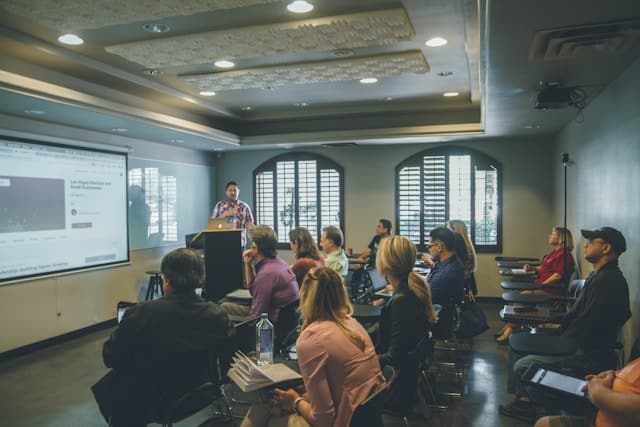The global decline of academic freedom has become one of the most pressing issues facing universities and scholars today. Across continents, classrooms and lecture halls, once safe spaces for inquiry, are being reshaped by political pressure, funding cuts, and ideological control. The Scholars at Risk (SAR) network recently published its annual report through the Academic Freedom Monitoring Project, revealing a disturbing increase in attacks against scholars, students, and academic institutions worldwide. Between 1 July 2024 and 30 June 2025, a total of 395 such incidents were documented across 49 countries and territories. These attacks ranged from suppression of expression and bans on certain study topics to targeted actions against individual scholars and students based on their views or research.
This alarming trend underscores not only the global decline of academic freedom but also the erosion of democratic and intellectual independence across multiple regions. Education, once seen as the cornerstone of critical thought and civic progress, is becoming a political battleground.
Table of Contents
The Global Decline of Academic Freedom: A Warning Sign for the World
According to Robert Quinn, SAR’s executive director, the report highlights how leaders from diverse regions, from Afghanistan and Serbia to the United States, have intensified efforts to restrict academic freedom. Governments have cracked down on free expression, forbidden the study of sensitive or disfavored topics, and targeted individuals because of what they teach, research, or say.
These actions undermine the core principles of academic independence and expose the vulnerability of academic communities to political and ideological pressures. The global decline of academic freedom is not just about professors being silenced; it’s about societies losing the ability to challenge ideas that shape public life.
Across several continents, academic freedom advocacy organisations are now calling for coordinated global initiatives for academic freedom, aiming to restore a balance between education and power. However, their efforts face resistance from entrenched political systems and shrinking spaces for dissent.

The United States: How a Diversity Superpower Became a Case Study in Academic Suppression
A particularly troubling trend emerged in the United States, where approximately 40 instances of threats to academic freedom were recorded in the first half of 2025. Under the Trump administration, these included the withdrawal of research funds at prominent universities, detention and attempted deportation of international scholars, often due to their pro-Palestine viewpoints, and legislative moves aimed at restricting diversity, equity, and inclusion (DEI) programs.
SAR characterises these developments as making the United States a “model” for eroding academic independence. Quinn remarks that such governmental actions are unprecedented among a global research superpower, signalling a threat not only to academia but also to American democratic values.
The report indicates a shift of pressure from local authorities to the federal government, which now seeks greater control over admissions, hiring, research activities, and disciplinary processes, thereby threatening the autonomy of higher education institutions. The situation demonstrates that even nations long associated with liberal education are not immune to the global decline of academic freedom.
Read Also: Australia’s 2025 Education Reforms: How They Affect Students
When Education Loses Its Independence: The Democratic Cost
This decline in academic freedom has serious implications for democracy itself. Universities traditionally serve as vital incubators for democratic values, critical discourse, and civic engagement. When these institutions are targeted, it signals an erosion of democratic norms.
Recently, the White House issued a memo to nine top-tier US universities, urging them to implement measures such as limiting international undergraduate enrollment to 15% and banning considerations of race and sex in hiring decisions.
Universities complying with these measures would gain access to federal student loans, visas for international scholars, and certain tax benefits, tying financial and operational incentives to conformity with government directives. This demonstrates how the global decline of academic freedom doesn’t happen in isolation; it’s often tied to funding pressures and political manoeuvring. And as restrictions grow, defending academic freedom worldwide becomes not just a cause but a necessity for preserving democratic education.

The Global Decline of Academic Freedom in Action
Beyond the US, the report highlights the global impact of governmental policies on academic settings. In countries like Afghanistan, Australia, Egypt, Malawi, Portugal, South Africa, and the UK, cuts to research funding have crippled a variety of educational and scientific projects. In India, efforts to restrict academic expression are increasingly evident. Universities have adopted policies that ban unauthorised protests, demonstrations, and sloganeering, often under the influence of the ruling Bharatiya Janata Party.
Incidents of campus violence have risen, including assaults on professors from marginalised communities and interference in cultural events, as exemplified by a film festival being halted despite prior approval.
Additionally, critical scholars have been sidelined or denied recognition, for instance, scientists reportedly excluded from prestigious awards after criticising government policies. The Academic Freedom Index classifies India’s academic freedom as “completely restricted,” reflecting a severe environment for free inquiry.
Experts like Maya John from the University of Delhi describe campuses increasingly resembling “policed zones,” with heightened surveillance and discriminatory treatment favouring regime-aligned groups. Recent curriculum revisions have seen proposals to remove or downplay critical themes such as religious nationalism and social inequalities, with faculty resignations and altered syllabi illustrating the shrinking space for debate. This is a clear picture of the global decline of academic freedom: one that shows how universities are becoming extensions of state ideology rather than independent centres of thought.
Beyond Borders: When Academic Freedom Becomes a Global Issue
Overall, the report indicates that academic freedom has experienced significant setbacks globally. Since 2024, 36 out of 179 countries have seen notable declines, with only eight showing improvement over the past decade.
Countries like Afghanistan, China, India, and Iran are rated as having “completely restricted” academic freedom, while others, such as Bangladesh, Pakistan, Russia, and Zimbabwe, are classified as “severely restricted.” The deterioration affects not just governments and universities but students and scholars who face oppression, violence, and suppression of their rights.
The situation is further compounded by regional conflicts and geopolitical crises. In Serbia, student protests against government corruption were effectively suppressed, with threats to defund universities and unpaid salaries for supporting staff. In Pakistan and parts of Africa, reports detail the abduction of student activists. Similar repression occurred in Georgia with violent crackdowns on protestors.
Amid the Russia-Ukraine conflict, Russian forces targeted educational institutions in Ukraine, including drone and artillery strikes on universities, while Ukraine responded with measures emphasising military training for students and disallowing those who refused to participate from future employment or higher education opportunities. The global decline of academic freedom is not just a political or cultural issue; it’s a humanitarian one.
The Academic Cost of War and Displacement
The ongoing conflict and military operations in Gaza and the West Bank have devastated higher education infrastructure in the Palestinian territories. Gaza’s universities face near-total destruction, while in the West Bank, movement restrictions, arrests, and raids have severely disrupted academic life. The Academic Freedom Index classifies Gaza as “completely restricted” and the West Bank as “severely restricted,” indicating profound limitations on scholarly activities and educational access.
These realities illustrate how conflicts not only destroy physical campuses but also erase years of intellectual progress. As academic freedom advocacy organisations note, defending academic freedom worldwide now requires humanitarian as well as academic action, rebuilding institutions, protecting scholars, and ensuring that learning can continue even under siege.

Why the Global Decline of Academic Freedom Matters
Clare Robinson, SAR’s advocacy director, notes that despite these dire developments, the global academic community has an opportunity to unite and foster solidarity. She emphasises the importance of communicating the value of academic freedom to the wider public, resisting isolationism, and advocating for legal protections based on principles that uphold academic independence.
The report ultimately underscores that defending higher education worldwide requires collective effort, resilience, and a steadfast commitment to the fundamental right to free and autonomous scholarly inquiry amidst mounting challenges.
This is where support for academic freedom initiatives plays a crucial role. Universities, governments, and individuals must collaborate on global initiatives for academic freedom, ensuring that education remains a force for truth, not propaganda.
Defending Academic Freedom Worldwide Begins with Awareness
The global decline of academic freedom has become more than headlines. It is now a shared concern. It affects real people, institutions, and societies. As citizens, scholars, and students, we hold a responsibility to protect spaces of truth and thought. If we lose academic freedom, we lose the freedom to question, and that’s the first step toward losing democracy itself.
Now more than ever, defending academic freedom worldwide demands unity, empathy, and persistence. Join or support academic freedom advocacy organisations, stay informed about global initiatives for academic freedom, and champion support for academic freedom initiatives in your own networks.
Because when learning is silenced, progress stands still.
FAQs on the Global Decline of Academic Freedom
1. What is the global decline of academic freedom?
It refers to the worldwide reduction in scholars’ ability to teach, research, and express opinions freely. The global decline of academic freedom is visible through censorship, intimidation, and funding cuts tied to political agendas.
2. Who are the main actors behind this decline?
Governments, institutional boards, donor agencies, and certain political groups often restrict expression, limit curriculum diversity, or suppress critical research.
3. What are global initiatives for academic freedom?
These include cross-border coalitions, academic networks, and policy-driven programs that promote free scholarship and hold institutions accountable for suppressing dissent.
4. How do academic freedom advocacy organisations work?
They monitor abuses, publish reports, and offer protection for at-risk scholars. Some even help relocate persecuted academics through emergency fellowships.
5. What is academic freedom’s role in higher education?
Academic freedom’s role in higher education is to preserve inquiry and independent thought, the foundation of innovation and democratic engagement.
6. How can individuals support academic freedom initiatives?
By signing petitions, supporting and defending academic freedom worldwide campaigns, sharing verified information, and pressuring policymakers to protect academic independence.

